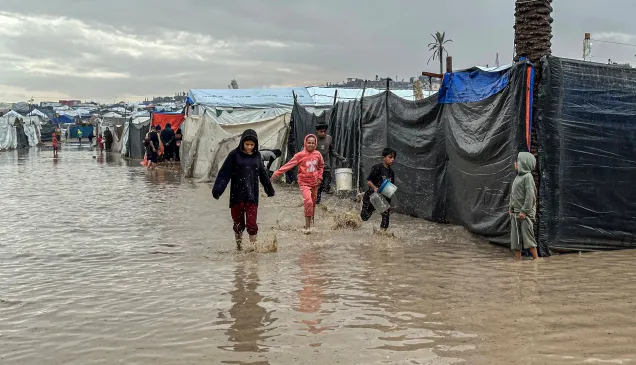Mohammad Abu Kamil, 30, is a person with a disability. On Gaza’s port, he discusses how persons with disabilities should be treated in public spaces with some friends and acquaintances.
Daily life in Gaza
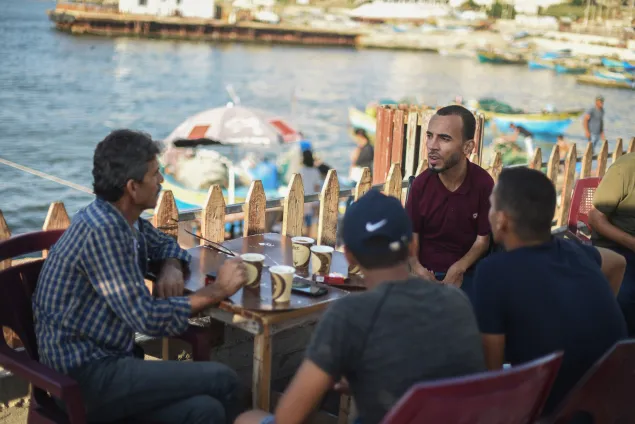
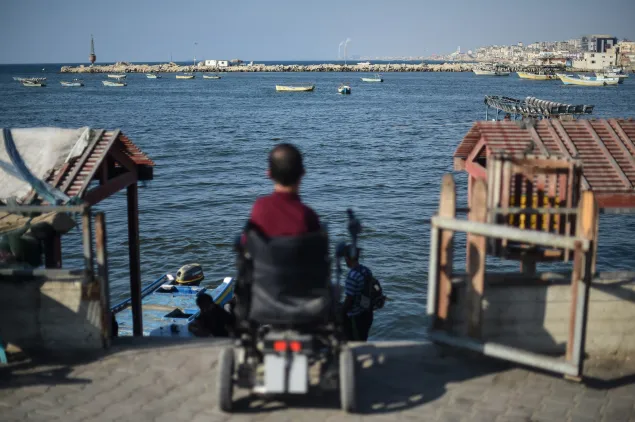
Mohammad Abu Kamil at Gaza’s port.
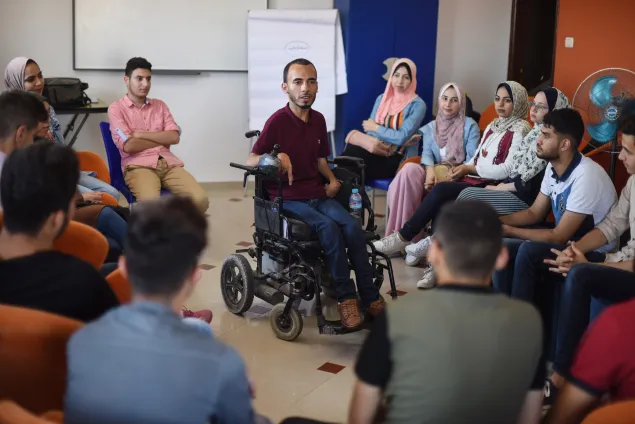
Students interacting with Kamil as he gives a lecture on how to treat persons with disabilities. The lecture was hosted by the organization Al-Nayzak in Gaza city as part of a training programme.
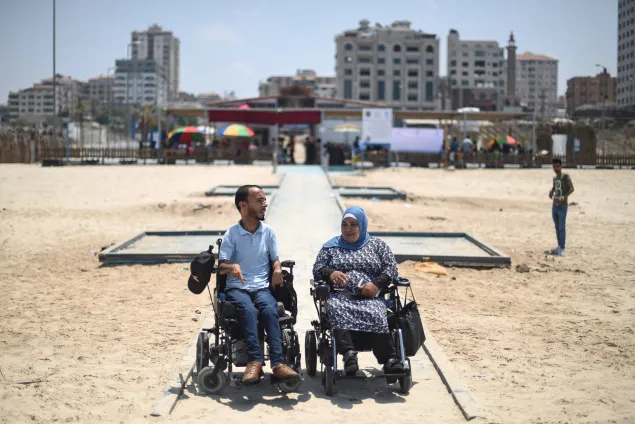
Kamil having a conversation with his friend, Zahra al-Madhoon, at a resting area on a Gaza beach made especially for persons with disabilities.
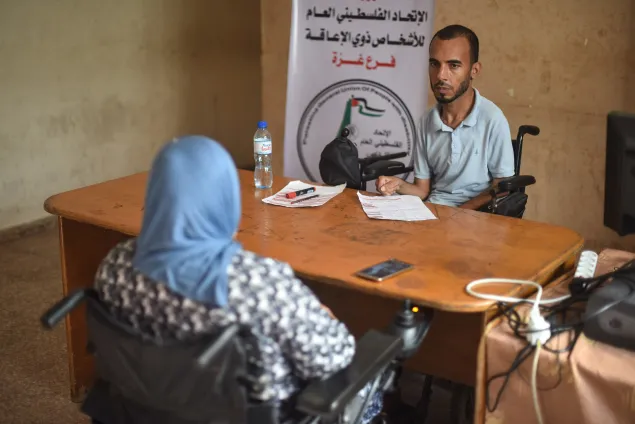
Kamil receiving a complaint from a friend inside the Palestinian General Union for People with Disabilities, Gaza Branch. Mohammad has been addressing the problems and challenges facing persons with disabilities for five years.
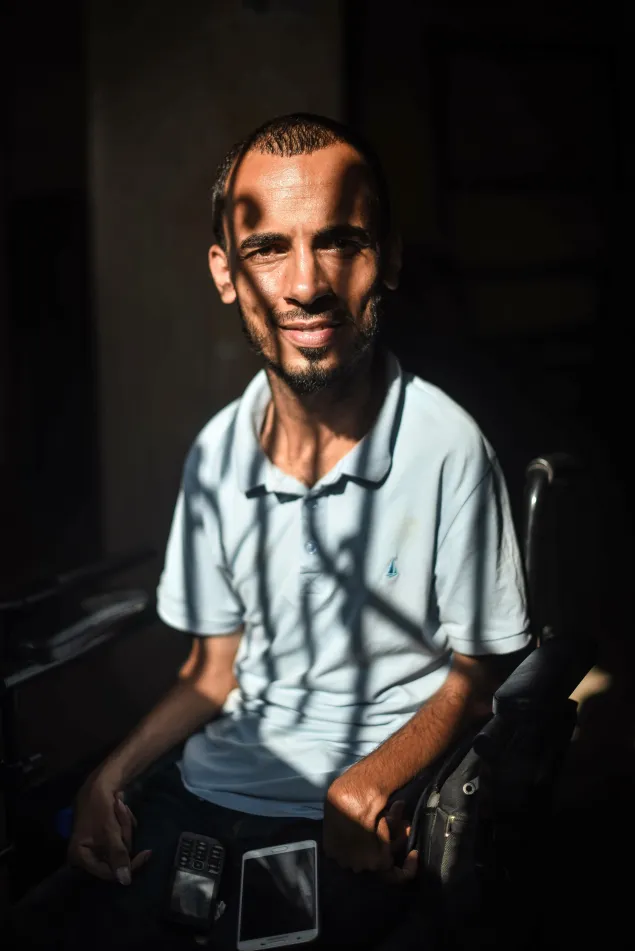
A portrait of Kamil in Gaza city.
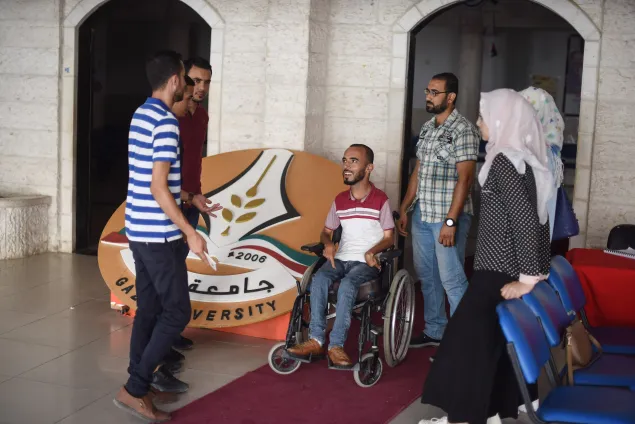
Kamil conversing with students following a lecture at Gaza University.
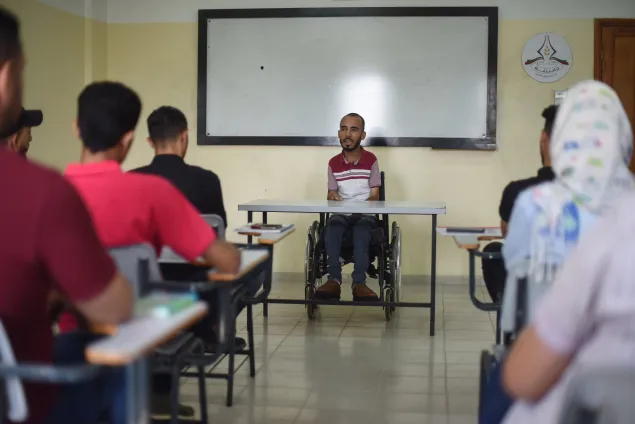
Kamil gives a lecture on how to deal with persons with disabilities. Gaza University invited him to raise the awareness of its students on the topic.
With a message that comes straight from the heart, Mohammed Abu Kamil is devoted to educating the community on how to deal with persons with disabilities. He also pours his efforts into figuring out how to support those who are in need or have fallen victim to the community’s negative perceptions. He visits schools, colleges, universities and local institutions, all on his own initiative.
He knows the extent of suffering and pressure exerted on persons with disabilities, especially at the psychological level. He was born with a mobility disability and knows exactly what the disabled go through to reach their goals.
Kamil graduated from the Faculty of Commerce of Islamic University of Gaza in 2011, and received a diploma in the management of civil society organization in 2013. This, coupled with years of experience, have helped him to make a mark in the field of awareness raising about persons with disabilities, their rights and how to deal with them.
Since 2011, around 120,000 people have benefited from his lectures. He shares many messages through which he tries to change society's negative perception of persons with disabilities. The most important of them is that disability is not a defect nor a disease, but a natural diversity.
“In my lectures, I focus on the fact that disability does not emerge from the persons themselves, but rather from the obstacles standing in their way and preventing them from participating in activities and events. I also work on solving the psychological problems facing persons with disabilities as much as possible,” Kamil says.
Kamil stresses upon the need for society to move beyond feelings of “pity” towards persons with disabilities. He hopes his idea draws the attention of civil society organizations, with a view to disseminating and applying it in schools, to ensure that the new generation understands how to respect the potential and dignity of persons with disabilities.



